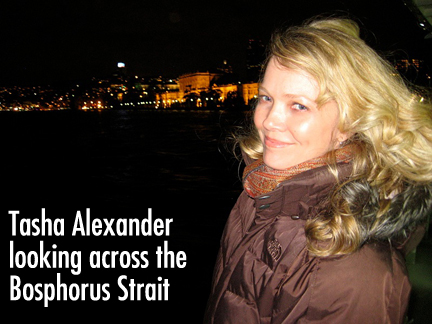We all have preconceived notions. It’s unavoidable. One of the most exciting things about doing book research is discovering all the ways in which our assumptions about people, places, and history are wrong. In the course of writing five novels (almost six; I’m just about done!), I’ve been forced again and again to revise my opinions about our Victorian counterparts.
But of all the books I’ve written, none has surprised me as much as Tears of Pearl. I’d decided to send Emily and Colin to Constantinople for their honeymoon—partly because I loved the exotic nature of the city and partly because I liked the idea of Emily, who struggles with the limits English society placed on women in the 19th century, in a society where the so-called weaker sex were even more repressed.
Sounds great, right? I thought so. But after I’d read letters and memoirs from women of the period, I realized the Ottoman ladies had a great deal more freedom and upward mobility than the average Englishwoman of the time. Their veils, which I’d ignorantly viewed as repressive, actually gave them quite a bit of freedom—they enabled them to move about the city freely without anyone knowing who they were. Meeting a lover in a café? No problem. The veil keeps you anonymous.
Last year, while working on the book, I visited Istanbul (because, as we all know, you can’t go back to Constantinople…). And for all that we like to think of our contemporary selves as modern and enlightened, many people did not react well to the idea of my trip. They didn’t think it was safe for a woman to travel alone to Turkey—surely it would be too dangerous. Now, of course it’s essential to be careful any time you’re traveling. But I can honestly say that I’ve never felt safer in a city than Istanbul. If anything, men were more respectful of a solitary woman than they are in New York or Chicago.
My first morning in the city, I met three wonderful American women at breakfast in my hotel. (You won’t find a more glorious breakfast spread anywhere than that set out at the Hotel Empress Zoe every morning.) They were going the hamam—the Turkish baths—that evening and invited me to join them. The hamam was high on my list for must-sees in the city. I’d read all kinds of fabulous descriptions of them in letters written by Victorian English women travelers. As a junkie of all things spa-related, I loved the idea of being massaged and scrubbed. But I must confess to having felt a little nervous about the whole thing.

First, because I wasn’t exactly sure what the process would be like. Second was the whole issue of sitting around naked in a room full of total strangers.
Going with my new found friends alleviated the first problem. Because if we all did everything wrong, at least we would all be wrong together, which is somehow less daunting than being wrong alone.
As for the second point, there was simply no avoiding it. And it struck me, as I walked into the more than 300-year-old Ca?alo?lu Hamam, that countless Victorian women travelers (Florence Nightingale included) had preceded me. And surely if they—whom we all assume to have been much more modest than the Modern American Girl—could do it, I could.
Which sounds fabulous until you’ve emerged from your beautiful wooden dressing room stark naked only to have your bath attendant hand you a tiny piece of cotton to use as a towel. This and a pair of wooden clogs are all you can take into the haratet, or hot room. We did our best to cover ourselves up and shuffled over marble floors into an enormous domed room lined with washbasins. Here you’re instructed to sit and handed a silver bowel. This you dip into the nearest basin, fill with hot water, and dump over your head. Repeat over and over and over.
Obviously at this point, you have to abandon the towel. Somewhat terrifying at first. But all the women in the hamam do it—and you find that it’s actually not so bad. And before you know it, you’re relaxed, your muscles loose as you lean against the marble bench dousing yourself with water and falling into easy conversation with the people around you. By the time your attendant comes back to lead you to the marble platform in the center of the room, where she’ll massage and scrub you, you could care less what you’re wearing. The entire ritual was amazing, and by the time I emerged, my skin softer than a baby’s, I knew that if I could, I’d hamam every single day.
It was an ethereal experience in an exquisite building. Those Victorian women travelers knew a good thing when they saw it. As much as I loved Istanbul—cruising the Bosphorus to the Black Sea, combing through the treasures of Topkap? Palace, haggling in the Grand Bazaar and the Spice Bazaar—the hamam will always be high on the list of my favorite experiences. I loved it so much I went back two more times during my trip. Research, you see, needs to be well and thoroughly done…
Tasha Alexander is finishing up her fifth novel starring Lady Emily, who heads to Turkey in Alexander's new release Tears of Pearl.
















